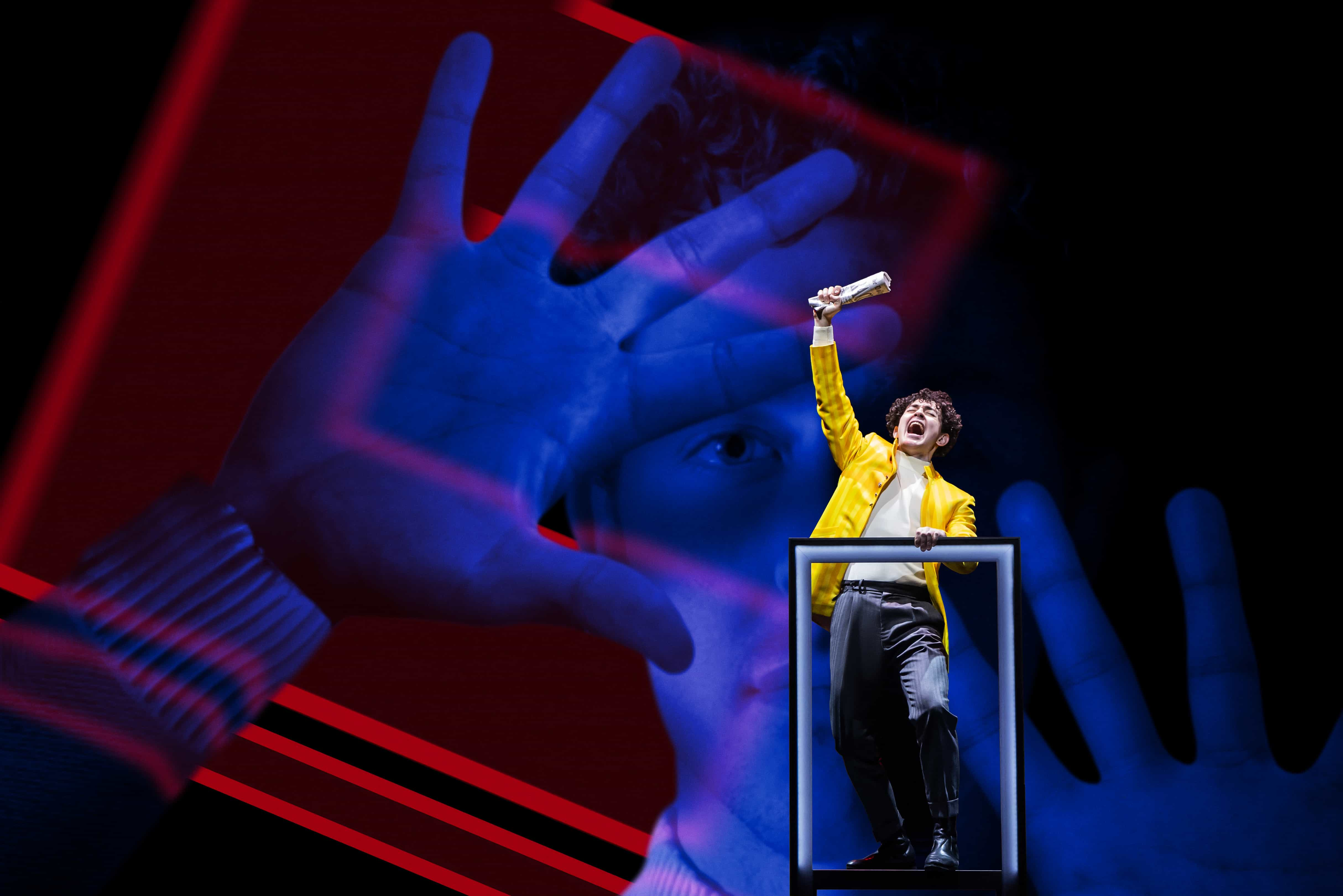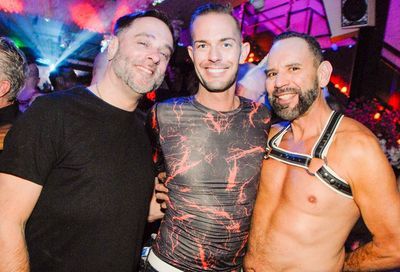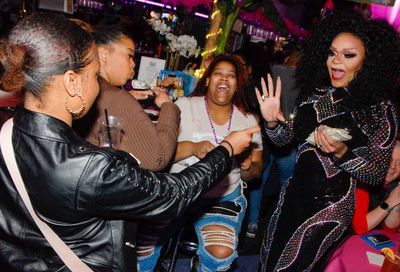Theater Review: “Where We Belong” at Woolly Mammoth
Madeline Sayet skillfully addresses language, heritage, and what it means to be a being in constant flight

Madeline Sayet opens Where We Belong (★★★★☆) not with her own story, but one from the land she is performing on. In a voiceover, she tells of Nansonnan, one of the last traditional chiefs of the Piscataway, on whose territory Washingon, D.C. now sits. We hear that Nansonnan demanded justice from colonial authorities after the ransacking of her late daughter’s grave, one of the few times we can hear the Piscataway speak for themselves in records from that time. The story, she acknowledges, is not her own. It is of another woman, belonging to a different people, in another time.
When Sayet begins her own personal history, it is in a more surprising place. Recalling a flight from London to Stockholm, far from home, she opens her solo show with the tale of a brash Swedish border guard asking the passengers how they voted in the then-recent Brexit referendum. Not British herself, Sayet was, of course, unable to vote, but she satisfies the guard by telling him she would have voted to remain. It’s not lost on Sayet that she found safety on the “correct” side of a conflict, much the way the Mohegans did centuries ago, when, as she reflects, their leader Uncas allied with the British and thus spared his followers the genocidal fate of their Pequot kin.
The affinity between Nansonnan’s 1707 demand for justice, Uncas’ sage diplomacy and Sayet’s present-day journey to the UK to study Shakespeare is emblematic of the intertwining narratives that she deftly weaves together over the course of her solo performance. Sayet, whose Mohegan name means “blackbird,” repeats the phrase “I fly, I fly,” throughout the performance, moving around a sparsely dressed stage as she talks. It’s presented mostly chronologically, but like her namesake she flits between past and present, between her own story and that of her nation, its culture, and especially its language.
Language looms large in Where We Belong, preoccupied as it is with both the Mohegan language that Sayet and other members are trying to revitalize and the language of the settler-colonizers who all but wiped it out in the first place. Sayet’s early embrace of Shakespeare is initially as a refuge from the tension of straddling Mohegan and settler worlds, though she later devotes herself to the place of Shakespeare and his legacy in that very tension. Nothing, she reflects late in the show, is as simple as it might have looked from far away, but as the strands holding together the parts of her story become more complex, the connections between them also come into sharp relief.
Sayet makes the point that stories are not neutral things. In Mohegan tradition they carry the power to harm or heal. That her own people had that power taken from them when they were robbed of their language and stories by colonizers is not lost on her, either. The story we need to hear, she laments late in the play, is one that she cannot tell us, because it was taken from her long before she was even born. Though her point is well-taken, the tale we have instead is perhaps just as necessary, and Where We Belong tells it with grace and humanity.
Where We Belong is available through July 11 as an on-demand performance from Woolly Mammoth Theatre Company in association with the Folger Shakespeare Library. Tickets are $20.99. Visit www.woollymammoth.net. Closed captioning is available.
Read More:
Round House presents cathartic, punk-informed, one-woman musical “We’re Gonna Die”
Film Review: “Summer of 85” unfurls a gay love story with sinister overtones
Documentary “Mary J. Blige’s My Life” bares the powerful life story behind a career-defining album
Support Metro Weekly’s Journalism
These are challenging times for news organizations. And yet it’s crucial we stay active and provide vital resources and information to both our local readers and the world. So won’t you please take a moment and consider supporting Metro Weekly with a membership? For as little as $5 a month, you can help ensure Metro Weekly magazine and MetroWeekly.com remain free, viable resources as we provide the best, most diverse, culturally-resonant LGBTQ coverage in both the D.C. region and around the world. Memberships come with exclusive perks and discounts, your own personal digital delivery of each week’s magazine (and an archive), access to our Member's Lounge when it launches this fall, and exclusive members-only items like Metro Weekly Membership Mugs and Tote Bags! Check out all our membership levels here and please join us today!
























